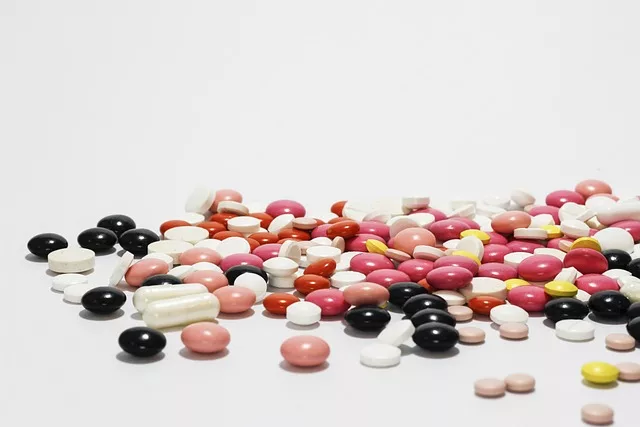Cocaine addiction is a complex and challenging condition affecting millions worldwide. This serious substance use disorder can have devastating psychological and physical effects on individuals and their loved ones. However, recovery is possible with the right approach. One important factor in overcoming cocaine addiction is the use of medication-assisted treatment. By understanding the science behind cocaine dependency, the role of medication in addiction recovery, the process of medical detoxification, combining medication with therapy, and strategies for maintaining sobriety, individuals can increase their chances of long-term recovery.

Understanding Cocaine Addiction
Cocaine addiction is a chronic brain disease resulting from repeated drug use. It affects the reward and pleasure centers in the brain, leading to intense cravings and compulsive drug-seeking behavior. Understanding the science behind cocaine dependency can shed light on how medication can help individuals overcome their addiction.
The Science Behind Cocaine Dependency
When cocaine is used, it rapidly increases levels of dopamine in the brain, causing a sense of euphoria. This surge of dopamine activates the brain’s reward system, reinforcing the behavior and creating a powerful association between cocaine use and pleasure.
Over time, the brain becomes desensitized to the drug’s effects, requiring higher doses to achieve the same high. As the brain adapts to the presence of cocaine, it undergoes significant changes. The reward and pleasure centers become dysregulated, leading to a diminished response to natural rewards such as food or social interaction. This dysregulation contributes to the intense cravings experienced by individuals with cocaine addiction.
In addition to affecting the reward system, cocaine also impacts other areas of the brain involved in decision-making, impulse control, and memory. These alterations in brain function can lead to impaired judgment, impulsive behavior, and difficulties in learning and retaining information.
Furthermore, chronic cocaine use can disrupt the brain’s ability to regulate stress. The drug activates the body’s stress response system, increasing stress hormone levels such as cortisol. Prolonged exposure to elevated stress hormones can have detrimental effects on both physical and mental health.
Psychological and Physical Impacts of Cocaine Addiction
Cocaine addiction can have severe psychological and physical impacts on individuals. The intense cravings and compulsive drug-seeking behavior associated with addiction can lead to strained relationships, loss of employment, and financial difficulties. The constant preoccupation with obtaining and using cocaine can consume a person’s thoughts and energy, leaving little room for other aspects of life.
Psychologically, cocaine addiction can cause a range of mental health disorders. It is not uncommon for individuals with cocaine addiction to experience anxiety, paranoia, and depression. The drug’s effects on the brain’s reward system and stress response can contribute to developing or exacerbating these conditions.
Physically, long-term cocaine use can have devastating consequences. The drug’s stimulant properties can significantly strain the cardiovascular system, leading to high blood pressure, heart attacks, and strokes. Cocaine can also cause respiratory issues, such as lung damage and difficulty breathing. Additionally, the drug can damage vital organs, including the liver and kidneys, further compromising overall health.
It is important to note that addiction’s physical and mental toll underscores the need for effective treatment options. Overcoming cocaine addiction often requires a comprehensive approach that combines medication, therapy, and support from healthcare professionals. With the right treatment and support, individuals can break free from the grip of cocaine addiction and reclaim their lives.
The Role of Medication in Addiction Recovery
Medication can play a crucial role in helping individuals overcome cocaine addiction. It can assist in managing withdrawal symptoms, reducing cravings, and stabilizing brain function. Medication-assisted treatment can significantly increase the chances of long-term recovery when used in conjunction with therapy and support.
How Medication Assists in Overcoming Addiction
Medication can help individuals overcome addiction by addressing the biological factors that contribute to their dependency. For example, medications such as buprenorphine can activate the same brain receptors as cocaine but with less intensity, reducing cravings and withdrawal symptoms. Medication can provide individuals with a solid foundation for recovery by stabilizing brain function.
Furthermore, medication-assisted treatment can also help individuals address the psychological aspects of addiction. By reducing the physical symptoms of withdrawal and cravings, medication can allow individuals to focus more effectively on their therapy and counseling sessions. This combination of medication and therapy creates a comprehensive approach to addiction recovery, addressing both the physical and psychological components of the disease.
Moreover, medication can also assist in managing any co-occurring mental health disorders that may contribute to addiction. Many individuals struggling with cocaine addiction also experience conditions such as depression or anxiety. In these cases, medications such as antidepressants or anti-anxiety medications may be prescribed alongside addiction treatment. By addressing these co-occurring disorders, medication can help individuals achieve a more stable mental state, reducing the risk of relapse.
Different Types of Medication Used in Treatment
Several different types of medication are used to treat cocaine addiction. These include agonists, which activate specific receptors in the brain to reduce cravings, and antagonists, which block the effects of cocaine. Agonist medications, such as methadone or buprenorphine, can help individuals manage withdrawal symptoms and reduce cravings by activating the same receptors in the brain that cocaine does, but in a less intense way.
On the other hand, antagonist medications, like naltrexone, work by blocking the effects of cocaine in the brain. By preventing cocaine from binding to its receptors, these medications can help reduce the rewarding effects of the drug, making it less appealing and reducing the risk of relapse.
In addition to agonists and antagonists, medications that target co-occurring mental health disorders may also be prescribed to individuals struggling with addiction. For example, individuals with depression may be prescribed antidepressants to help stabilize their mood and reduce the risk of self-medication with cocaine. Similarly, individuals with anxiety disorders may be prescribed anti-anxiety medications to help manage their symptoms and reduce the urge to use drugs as a coping mechanism.
It is important to note that the use of medication in addiction recovery should always be done under the guidance and supervision of a qualified healthcare professional. The specific medication and dosage will vary depending on the individual’s unique needs and circumstances. Additionally, medication-assisted treatment should always be combined with therapy, counseling, and support groups to maximize its effectiveness in promoting long-term recovery.

The Process of Medical Detoxification
Before individuals can fully engage in medication-assisted treatment, they may need to undergo medical detoxification. This process involves safely managing withdrawal symptoms under the supervision of medical professionals. Medical detoxification can provide individuals with a solid foundation for their recovery journey.
Medical detoxification is a crucial step in the treatment of substance abuse disorders. It is especially important for individuals who have developed a physical dependence on drugs or alcohol. When someone abruptly stops using these substances, their body goes through a period of adjustment known as withdrawal. This can be a challenging and uncomfortable experience, both physically and mentally.
During medical detoxification, individuals may experience a range of withdrawal symptoms as their bodies adjust to the absence of the substance they were using. These symptoms can vary depending on the specific substance and the individual’s unique physiology. Some common withdrawal symptoms include fatigue, irritability, depression, and intense cravings.
Medical professionals play a vital role in the process of detoxification. They closely monitor patients and provide appropriate medications to alleviate withdrawal symptoms and ensure their safety. The goal is to make the detoxification process as comfortable as possible while minimizing the risk of complications.
What to Expect During Medical Detox
Individuals undergoing medical detoxification can expect to receive comprehensive care and support. The process typically begins with a thorough assessment of their physical and mental health. This assessment helps medical professionals develop individualized detoxification plans tailored to their needs.
Throughout the detoxification process, patients are closely monitored by medical staff. Vital signs such as heart rate, blood pressure, and body temperature are regularly checked to ensure that any potential complications are promptly addressed. This constant supervision provides a sense of security and reassurance to individuals going through withdrawal.
In addition to physical monitoring, medical professionals also provide emotional support during medical detoxification. They understand that the journey towards recovery can be emotionally challenging, and they are there to offer guidance and encouragement. This support can make a significant difference in helping individuals stay motivated and committed to their recovery goals.
The Importance of Supervised Detoxification
Supervised detoxification is essential in ensuring the safety and success of individuals going through withdrawal. Attempting to detoxify at home or without medical supervision can be dangerous and potentially life-threatening. The withdrawal process can be unpredictable, and complications can arise suddenly.
In a supervised setting, medical professionals have the expertise and resources to manage any complications that may occur during detoxification. They can administer medications to alleviate severe withdrawal symptoms and prevent medical emergencies. Additionally, they can provide counseling and support to help individuals cope with the emotional challenges often accompanying detoxification.
Furthermore, supervised detoxification significantly reduces the risk of relapse. By being in a controlled environment with constant monitoring, individuals are less likely to have access to drugs or alcohol, reducing the temptation to use again. This increases the chances of successful detoxification and sets the stage for ongoing recovery.
In conclusion, medical detoxification is a critical step in the treatment of substance abuse disorders. It provides individuals with the necessary support and care to manage withdrawal symptoms and safely begin their recovery journey. Through close supervision, appropriate medications, and emotional support, medical professionals play a crucial role in ensuring the success and safety of the detoxification process.
Combining Medication with Therapy for Recovery
While medication can help address the biological aspects of addiction, therapy plays a vital role in addressing the psychological and behavioral components. Combining medication with therapy can provide a comprehensive approach to recovery.
Cognitive Behavioral Therapy and Medication
Cognitive-behavioral therapy (CBT) is a common therapeutic approach used in addiction recovery. It focuses on identifying and changing negative thought patterns and behaviors related to drug use. CBT can help individuals develop effective coping strategies and build a strong support system for long-term sobriety when combined with medication.
The Role of Support Groups in Medication-Assisted Recovery
Support groups can be an invaluable resource for individuals in medication-assisted recovery. These groups provide a safe and supportive environment where individuals can share their experiences, gain guidance, and receive encouragement from others who have gone through similar challenges. Support groups can help individuals maintain motivation and develop healthy coping mechanisms.
Life After Cocaine: Maintaining Sobriety
Maintaining sobriety is a lifelong journey that requires ongoing commitment and effort. To increase the chances of long-term recovery, individuals should implement strategies for preventing relapse and be aware of the potential long-term effects of medication-assisted recovery.
Strategies for Preventing Relapse
Preventing relapse involves developing a strong support system, identifying and avoiding triggers, engaging in healthy activities, and continuing with therapy and counseling. Creating a relapse prevention plan and staying connected with recovery resources can help individuals navigate the challenges of life after cocaine addiction.
Long-Term Effects of Medication-Assisted Recovery
Medication-assisted recovery can have long-term positive effects on individuals’ lives. By stabilizing brain function and reducing cravings, medication can help individuals regain control over their lives and build a solid foundation for recovery. With ongoing support and a commitment to a healthy lifestyle, individuals can enjoy a fulfilling life free from cocaine addiction.
In conclusion, overcoming cocaine addiction is a journey that requires a comprehensive approach. Medication-assisted treatment, combined with therapy, provides individuals with the necessary tools to address the physical, psychological, and behavioral aspects of addiction. By understanding the science behind addiction, the role of medication, the process of detoxification, and strategies for maintaining sobriety, individuals can take important steps towards a healthier, drug-free life. With the right support and a commitment to long-term recovery, individuals can overcome cocaine addiction and achieve lasting sobriety.
Do you have questions about cocaine addiction or medication-assisted therapy?
Contact Inspire Malibu to speak with an admissions counselor. All calls are kept confidential.





